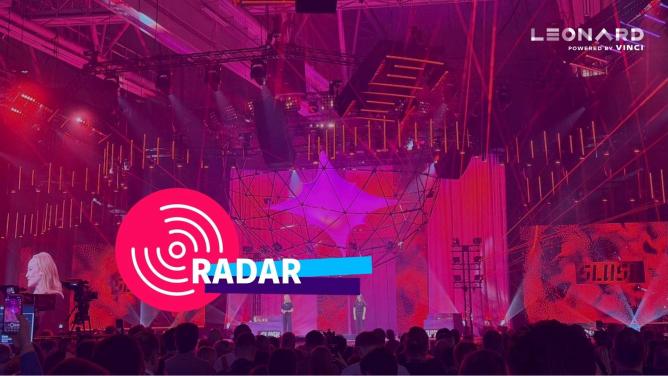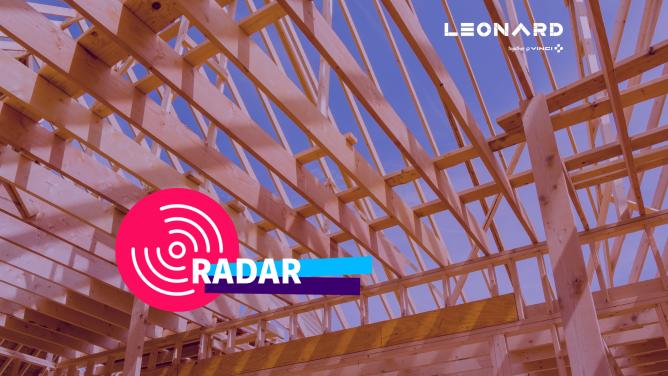Minitrucks Robotics raises €1.5 million to accelerate the rollout of its range of compact mini-trucks
Minitrucks Robotics, a startup based in Vénissieux, France, and a spin-off from the Hydrosystem group, has just raised €1.5 million from the Fonds d’Amorçage Industriel Métropolitain (FAIM). This €70-million seed venture fund was launched at the start of 2022 and is operated by the management company Demeter. It aims to finance sustainability industry startups in and around Lyon and Saint-Etienne.
The startup fits perfectly into this remit, as it is developing a range of radio-controlled electric mini-trucks capable of transporting heavy loads (up to 4 tons) in confined and difficult-to-access spaces. Equipped with radio-controlled electro-hydraulic technology that allows them to travel at slow speeds (less than 5 km/h), the mini trucks also come with other options, such as autonomous loading, lifting and digging.
These devices are designed for major industrial manufacturers and tradesmen in various different sectors, such as marble masonry, construction, heavy industry or green space management, as they help reduce the risk of workplace accidents and injuries linked to MSDs (musculoskeletal disorders), while improving operational productivity and efficiency.
Minitrucks Robotics plans to deliver 100 machines in 2024 and plans to increase annual production to 300 next year. These new funds will be used to accelerate the rollout of its range of mini-trucks and to strengthen its teams. In addition, the company also plans to develop a rental service, build international partnerships and create customization options in collaboration with auto body mechanics to meet different business needs.
Swedish startup Recoma secures funding to develop its recycled materials
Recoma, a startup based in Hässleholm in Sweden, has just received a strategic investment for an undisclosed amount from the investment fund Kiilto Ventures. The latter was won over by the company’s innovative approach, which is looking to convert packaging waste (such as food cartons and beverage containers) into low-carbon construction panels.
To achieve this, Recoma has developed a process that sterilizes discarded packaging before compressing it, transforming it into sustainable alternatives to traditional construction materials. Furthermore, no virgin materials are added during the manufacturing process.
The resulting recycled materials can be used to replace traditional materials, such as plywood, drywall and oriented strand board (OSB), at no additional cost to builders. Tetra Pak and the Swedish construction company Skanska are already among the startup’s customers and partners.
In 2024, Recoma aims to recycle 7,000 tons of waste annually (compared to 1,000 in 2023).
Five construction tech innovations to follow from CES 2024
During CES in Las Vegas, the website Construction Dive identified five interesting innovations for the construction sector:
- The Concept-X2 autonomous electric excavator from the Korean automobile manufacturers Hyundai. Controlled by artificial intelligence, it is designed as a solution to address skilled labor shortages and the challenges facing decarbonization.
- The start-up InventWood, which has created a new wooden material named Mettlewood. The latter is 20 times stronger than normal wood and 60% stronger than steel, and it can also capture carbon. Not only is it also lighter than steel, but it has many applications in construction and other sectors.
- The S7X zero-emission, electric-powered compact skid-steer loader from Doosan Bobcat, which helps reduce noise and air pollution on construction sites. Bobcat also says the S7X is designed with half the components of a traditional loader and 96% less fluid, making maintenance simpler.
- Caterpillar’s R1700XE electric underground mining loader, with rapid charging (in less than 20 minutes), as well as its MEC500 mobile charging station.
- The Japanese startup inQs, which won a Best of Innovation award for its SQPV Glass which generates electricity from light. The solar glass converts natural or artificial light into electricity using layers of electricity-generating nanomaterials. The product can be installed in various ways, including as conventional windows, internal partitions or on the outside of existing windows.
There’s more…
French startup Hiboo is chasing down industrial machinery CO2 emissions thanks to €9.3 million in funding – Read more in Les Echos (only in french)
Weavix, a US startup reinventing construction site communications, raises $23.6 million – Read more on Techcrunch
An original funding model helps French startup Logivolt to accelerate the rollout of electric vehicle charging stations – Read more on Maddyness. (only in french)
Briq, an American startup which uses AI to automate finances in construction, raises $8 million – Read more on Techcrunch
French startup Alogia raises €6.5 million to develop its home health prevention solutions – Read more on Infonet. (only in french)



